North, South Koreas set to hold talks on Winter Olympics, family reunification
The two Koreas are preparing to hold their first round of formal talks in almost two years at a border village on next month’s Winter Olympics, among other issues of bilateral interest.
Delegates from both sides are scheduled to meet at the truce village of Panmunjom at 10:00 a.m. local time on Tuesday days after Pyongyang expressed its willingness to take part in the winter games.
The talks will primarily focus on North Korea’s participation in the Winter Olympics, which will be held in South Korea’s PyeongChang County.
Pyongyang agreed to the negotiations on Friday hours after South Korea and the US delayed a military exercise amid tensions over the North’s nuclear and missile programs.
According to the South’s Unification Minister Cho Myoung-Gyon, Seoul will also “prepare for discussions on the issue of separated families and ways to ease military tensions” on the Korean Peninsula.
The neighbors have been separated by a heavily militarized border since the three-year-long Korean War came to an end in 1953. The conflict ended with an armistice rather than a formal peace treaty, leaving many families separated at the two sides.
South Korean government officials, however, said they do not know what Pyongyang would pursue in the negotiations, but analysts suggest North Korea -- under harsh UN sanctions over its nuclear and missile programs-- would likely try to discuss humanitarian aid and economic cooperation.
Ahead of the inter-Korean talks, nuclear envoys of Japan and South Korea met in Seoul on Monday to discuss Pyongyang’s nuclear program and the situation on the Korean Peninsula, the South’s Foreign Ministry said.

Tensions have been running high on the Korean Peninsula over the past year, which saw several missile and nuclear launches by Pyongyang as well as an exchange of military threats between US President Donald Trump and the North Korean leader Kim Jong-un.
Pyongyang defends its military program as a deterrent against potential foreign aggression. The North views joint war games between the US and its neighbors as a rehearsal for war, and has repeatedly urged South Korea and Japan to stop such drills.
Russia and China, which are viewed as allies of the North, have welcomed the upcoming inter-Korean negotiations.
Last week, South Korea’s President Moon Jae-in spoke by phone with his American counterpart, who described talks between Seoul and Pyongyang as “a good thing.”
Trump has, however, in many ways attempted to undermine the progress and played down the prospect of a bigger breakthrough.
The president also tried to take credit for inter-Korea talks, saying on Twitter that the dialogue wouldn’t happen “if I wasn’t firm, strong and willing to commit our total ‘might’ against the North.”
Holocaust expert: Israel committing genocide in Gaza
Australia ‘s Jewish Council warns against labeling pro-Palestine demos ‘anti-Semitic’
Russia’s Navalny did not die on Putin’s order: US intelligence
Iran warns against threat of terrorism to regional, global security
Tracing the origins of Zionist lobby’s malign influence on American academia
VIDEO | Drone footage captures aftermath of deadly Kenyan flood
Explainer: What is Persian Gulf Day and what are its origins and significance?
VIDEO | 'Ceasefire now!' - Pro-Palestinian motorcade drives through Rotterdam


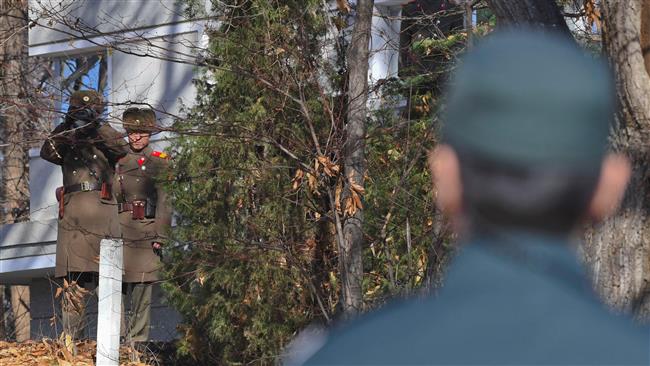
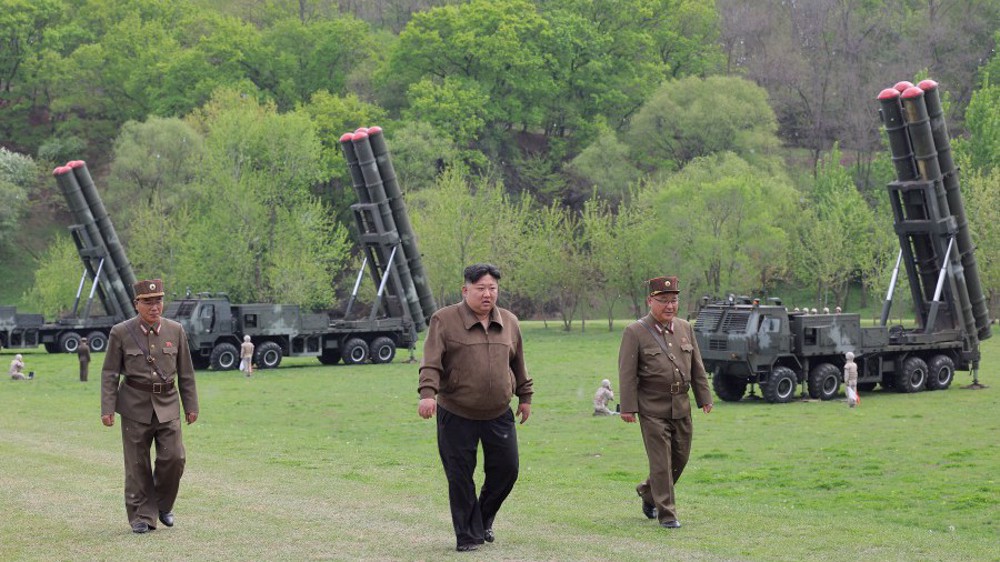
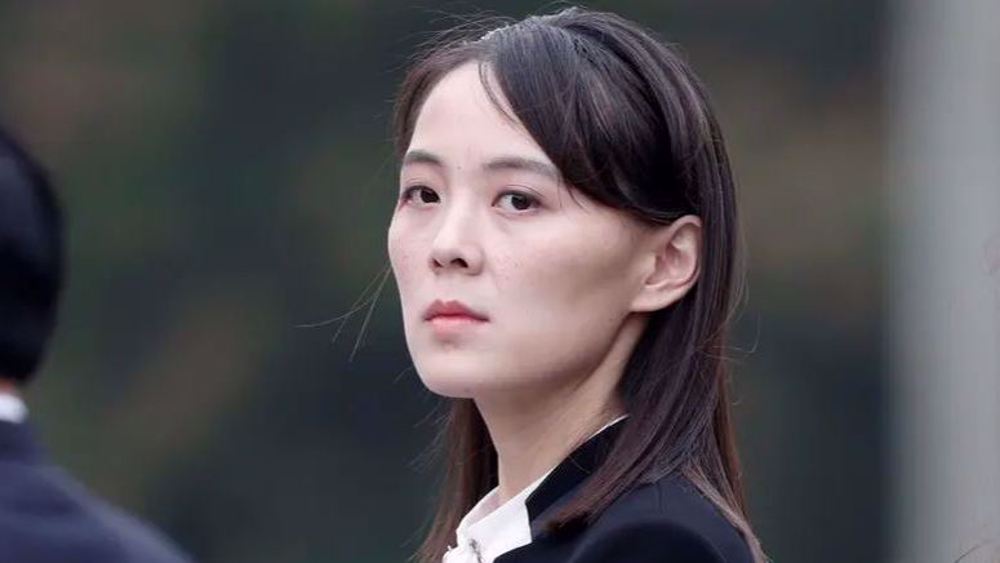
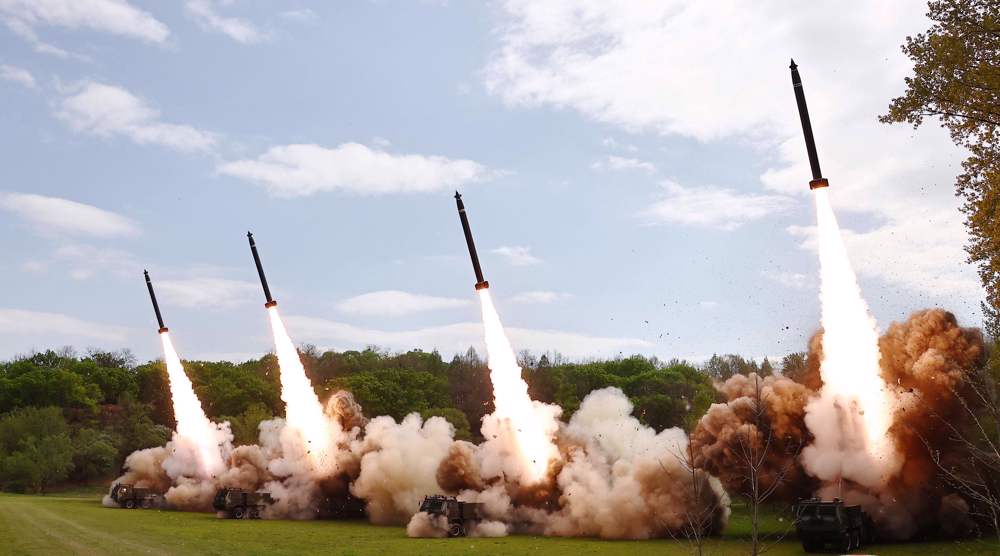



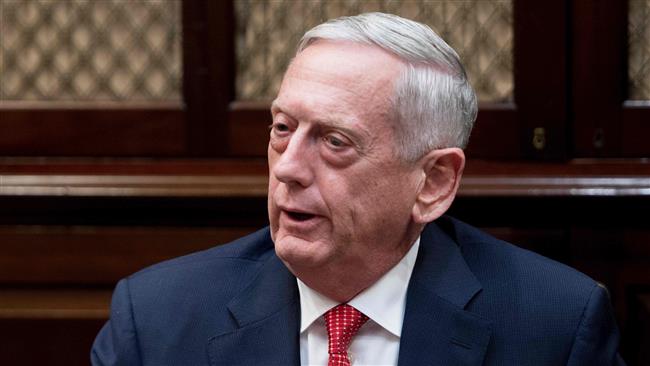



 This makes it easy to access the Press TV website
This makes it easy to access the Press TV website